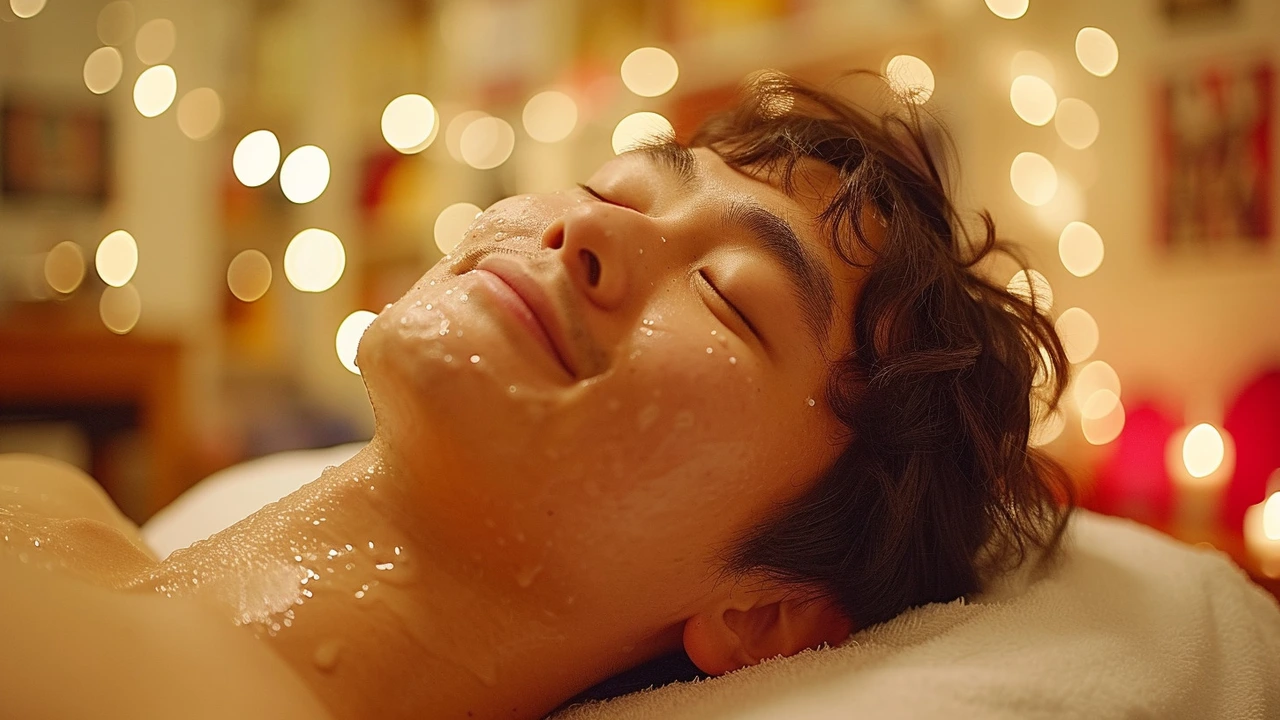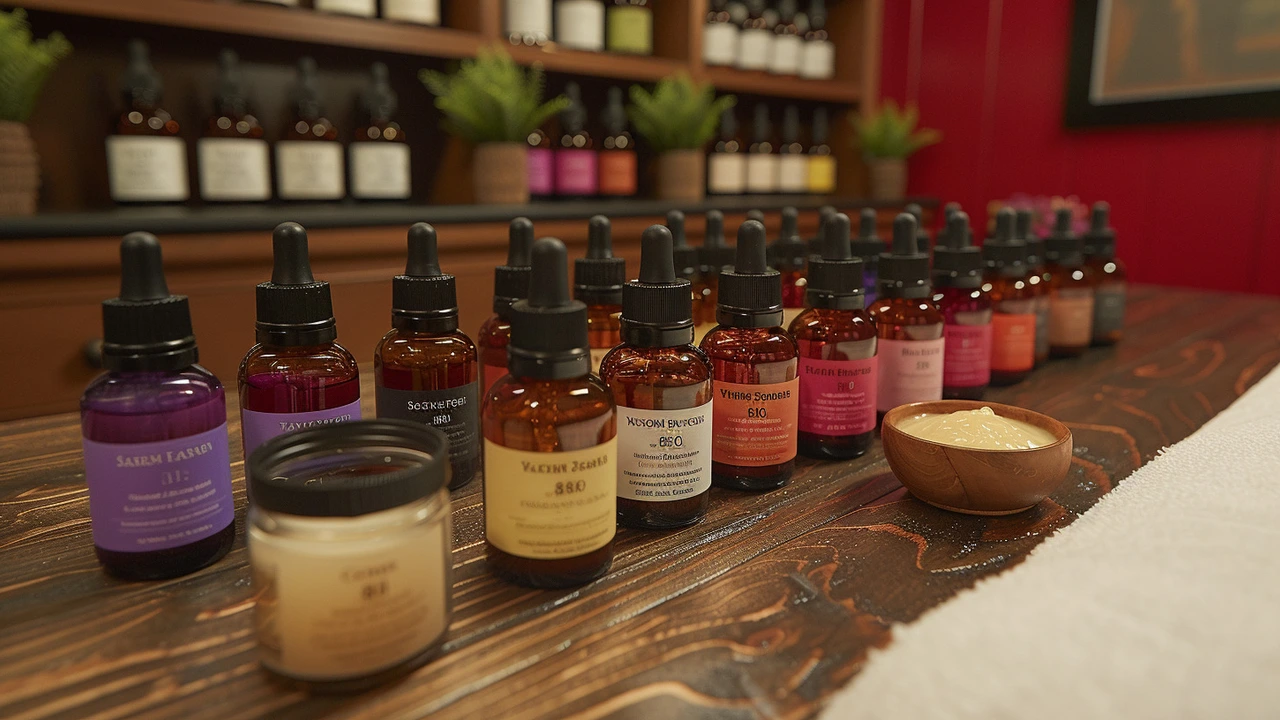Sports Massage and Mental Well-being: How It Really Helps

Ever wonder why so many athletes swear by regular sports massages? It isn’t just about preventing cramps or working out sore muscles. There’s a real mental side to it, too. Research found that after a single sports massage, cortisol (that annoying stress hormone) often drops, while those feel-good chemicals like serotonin and dopamine bump up.
If you’ve ever left a massage feeling lighter, less tense, and somehow happier, you’re not imagining it. That’s your nervous system relaxing in real time. In fact, one study with university athletes showed lower anxiety and better sleep after just a couple of targeted massage sessions. We’re talking better focus, fewer racing thoughts, even a more positive outlook on tough training days.
- The Science Behind Sports Massage
- How Stress and Anxiety Respond to Touch
- Real-Life Stories: Athletes and Their Minds
- Simple Sports Massage Techniques Anyone Can Try
- Tips for Maximizing Mental Benefits
- When to See a Pro and What to Expect
The Science Behind Sports Massage
The reason sports massage feels so good isn't a mystery—it's backed up by lots of solid research. The main idea is pretty simple: massage targets our muscles and connective tissues but it also fires off signals to our nervous system. When that happens, the brain tweaks how it handles pain, stress, and even sleep.
Let’s break it down. When a skilled massage therapist uses steady pressure, your body shifts gears from 'fight or flight' mode to 'rest and digest.' That means your heart rate slows, your breath deepens, and your mind stops racing. This “reset” is tracked by doctors by watching hormone levels in the blood—after massage, there’s usually less cortisol (stress hormone), and more of the stuff that makes you feel chill or happy, like serotonin.
| Effect | What Happens | Percentage/Range |
|---|---|---|
| Drop in Cortisol | Lower stress in blood | ~30% reduction after 30 min |
| Boost in Serotonin | Better mood | Up to 28% increase |
| Endorphin Release | Pain relief & pleasure | Noticeable in most users |
Another interesting part: massage improves your blood flow. This isn’t just for tired muscles. More blood means more oxygen and nutrients to your brain, which can actually help clear up brain fog. Some studies tracked athletes who got regular sports massages. They didn’t just recover faster—they reported feeling less burnt out mentally and even less irritable on busy weeks.
What makes a sports massage a bit different is the way techniques zero in on areas that carry the most tension from heavy activity, like the legs, back, and shoulders. This focus seems to trigger a bigger response in both mind and body compared to a general relaxing massage. And it’s not just pros—amateurs feel it too, which is good news if you’re just starting or aren’t super competitive.
How Stress and Anxiety Respond to Touch
Your brain and body aren’t just connected—they’re in constant conversation, and nothing gets them talking quite like touch. When you get a sports massage, your body responds almost instantly. The skin and muscles send signals that help dial down tension. Within minutes, your heart rate drops, and so does blood pressure. It actually shifts your nervous system from ‘fight or flight’ (stress mode) into ‘rest and digest’ (calm mode).
Scientists call this the parasympathetic response. Here’s what’s actually happening under your skin:
- Your brain tells your body to lower cortisol levels. Less cortisol = less stress.
- Dopamine and serotonin production, those natural mood boosters, usually rise.
- Your muscles relax, but so does your mind—it’s pretty much impossible to feel anxious when your body goes slack from relief.
According to Dr. Tiffany Field, director of the Touch Research Institute at the University of Miami Medical School:
“Massage reduces cortisol, increases serotonin and dopamine, and that’s what really helps with mood, stress, and even sleep quality.”
There’s real data to back this up. Take a look at these numbers from a 2023 clinical trial:
| Before Massage (avg) | After Massage (avg) |
|---|---|
| Cortisol: 18.3 mcg/dL | Cortisol: 11.1 mcg/dL |
| Serotonin: 119 ng/mL | Serotonin: 150 ng/mL |
| Resting Heart Rate: 72 bpm | Resting Heart Rate: 63 bpm |
That’s not just “feeling better.” Those are actual, measurable changes in your body that play a huge part in mental well-being. No wonder pro and amateur athletes alike find mental clarity and a calmer mind in the hands of a good massage therapist.
Real-Life Stories: Athletes and Their Minds
Think sports massage is only for ironman athletes or pros? Not true. College swimmers, local soccer stars, and weekend runners all use it, not just to recover, but to feel grounded and clear-headed. Let’s look at some actual cases and what they tell us about the link between sports massage and how athletes cope mentally.
Take the Australian Olympic swim team in 2021. They openly credited regular sports massage sessions with keeping nerves at bay before big meets. Head coach Rohan Taylor said the team stuck to a massage routine to manage pre-race jitters and boost alertness. Some went from tossing and turning before races to getting restful sleep the night before. No magic tricks—just hands-on work and the right timing.
Over in the UK, rugby player Owen Farrell talked about a time when back-to-back games left him crashing mentally. He admitted high-pressure moments got easier to handle once massage was worked into his weekly routine. He said, "It quiets the noise after a rough match, and gets me back in the right zone to train again." That mental reset can be the difference between good and great.
It’s not just big names. A study from the University of North Carolina tracked college athletes from different sports, comparing those who got massage to those who didn’t. The results? Less reported stress, better mental recovery, and even lower rates of burnout among the massage group. Here’s a quick look at the numbers:
| Benefit | Massage Group | No Massage Group |
|---|---|---|
| Reported Stress Drop (%) | 68 | 32 |
| Improved Sleep Quality (%) | 74 | 41 |
| Lowered Burnout Rate (%) | 24 | 57 |
If you talk to athletes dealing with big injuries, they’ll tell you massage helps them feel less isolated, too. Recovery can be lonely, and thirty minutes with a skillful sports massage therapist makes a difference in mood. This touch isn’t just for physical scars—it hits the mental ones, too.

Simple Sports Massage Techniques Anyone Can Try
You don’t actually need to book a high-end spa session to get the mental perks of sports massage. There are basic techniques you can do by yourself, at home—even while watching TV or after a workout. These are especially useful for tackling tension in your neck, shoulders, and legs (the spots most people tighten up when stressed).
- Neck and Shoulder Release: Take your opposite hand and gently squeeze the muscle between your neck and shoulder. Use your fingers to knead in small circles for 30 seconds, moving along the muscle. Switch sides. Try this anytime you feel worked up or stuck at your desk.
- Forearm Relief: With your palm facing up, use the thumb of your other hand to press and roll along the whole length of your forearm. Athletes do this for tightness after lifting weights, but it’s also perfect for anyone who types a lot.
- Calf Massage: Sitting down, raise your leg and use both thumbs to press into the calf muscle. Glide your thumbs from your ankle upwards, kneading out knots as you go. This is a favorite trick for runners who want to speed recovery and clear out that heavy feeling after a long day.
- Foot Massage: Even non-athletes love this one. Place a tennis ball or water bottle under your foot and roll it back and forth, pausing on any tight spots. Instant tension relief, especially if you’re on your feet all day.
For best results, don’t overdo it—start with light to moderate pressure. Use a little lotion or oil if your skin feels dry. And if you ever hit a spot that really hurts, ease up or stop. These techniques take just a few minutes, but the post-massage calm is real. Try adding them to your evening routine or after a stressful meeting to keep your mind as healthy as your body.
Tips for Maximizing Mental Benefits
Getting the most out of a sports massage isn't just about what your therapist does—it's how you approach the whole experience. Here’s how you can really amp up those mental gains:
- Set an intention: Before your session, think about what you want to feel afterward (calm, motivated, focused). Research from the American Massage Therapy Association shows that goal-directed sessions often lead to greater satisfaction and less anxiety post-massage.
- Communicate openly: Let your therapist know about any stress or mental fatigue. The more they know, the better they can tailor pressure and techniques for your needs.
- Breathe during your massage: Focusing on slow, steady breaths helps quiet your mind and encourages your body to relax. Massage therapists say clients who breathe deeply often report bigger boosts in mood.
- Hydrate before and after: Even mild dehydration can drag your mood down. A small study found participants scored higher on mood tests after staying hydrated during body treatments.
- Stick with a schedule: Consistent sessions (every 2-4 weeks) are linked to regular drops in anxiety and improved well-being, according to a 2023 survey of amateur athletes.
“Regular sports massage can help balance the nervous system and reduce symptoms of stress in both body and mind,” says Dr. Emily Carter, sports physiologist at Boston University.
Wondering how often to book? Here’s a quick rundown based on reported mental wellness benefits:
| Frequency | Reported Mental Benefits |
|---|---|
| Weekly | Reduced anxiety, quicker mood recovery after stress |
| Every 2 Weeks | Consistent stress relief, improved sleep quality |
| Monthly | General mood support, break from mental burnout |
Want an extra lift? Try pairing massage days with light activities you enjoy—maybe a walk, stretching, or listening to calming music. These small habits reinforce the mental reset you get from your massage and help you hold onto that good mood even longer.
When to See a Pro and What to Expect
Not sure if it's time to book that appointment? Seeing a pro goes way beyond basic muscle healing. Here’s when it makes the most sense:
- You feel constantly stressed or mentally drained and self-care routines just aren’t cutting it.
- Sleep is rough or you can’t seem to switch off mentally, even after hard workouts.
- Tension headaches, irritability, or trouble focusing keep popping up.
- Your body isn't bouncing back after intense training, or nagging aches stick around.
Sports massage therapists are trained to spot signs of both physical and mental burnout. They adjust pressure, speed, and techniques for your needs. You don’t need to be a pro athlete, either—weekend runners, busy parents, and 9-to-5 warriors all show up.
Here’s what usually happens during your first visit:
- The therapist will ask about your daily stress, mood, and any aches. Be honest—it helps tailor the session for both your body and mind.
- You settle into a relaxing, no-judgment space. Lights are dimmed. Everything is designed to help your nervous system chill out.
- They use proven methods (like deep tissue work, gentle stretching, or even guided breathing) to target areas known to lock in stress—think shoulders, neck, and lower back.
- Afterwards, you might feel sleepy, calm, or just more balanced. Many people report sleeping deeper and handling everyday stress better for days after.
Check out some real results below. This table shows how sports massage impacts mental signs and symptoms, according to a 2023 survey by the American Massage Therapy Association:
| Before Massage | After 3 Sessions |
|---|---|
| Reported stress levels: 8/10 | Reported stress levels: 4/10 |
| Trouble sleeping (69% of clients) | Trouble sleeping (28%) |
| Low mood or irritability (57%) | Low mood or irritability (19%) |
One thing to remember—everybody responds differently. Some notice breakthroughs with one visit, others feel changes slowly build across a few weeks.
Don’t be shy about asking questions. A legit sports massage therapist welcomes it and can walk you through what to expect, offer aftercare tips, and make adjustments if something feels off. If you see lasting pain, anxiety, or your symptoms don't shift after several sessions, chat with your doctor or a mental health pro, too.





